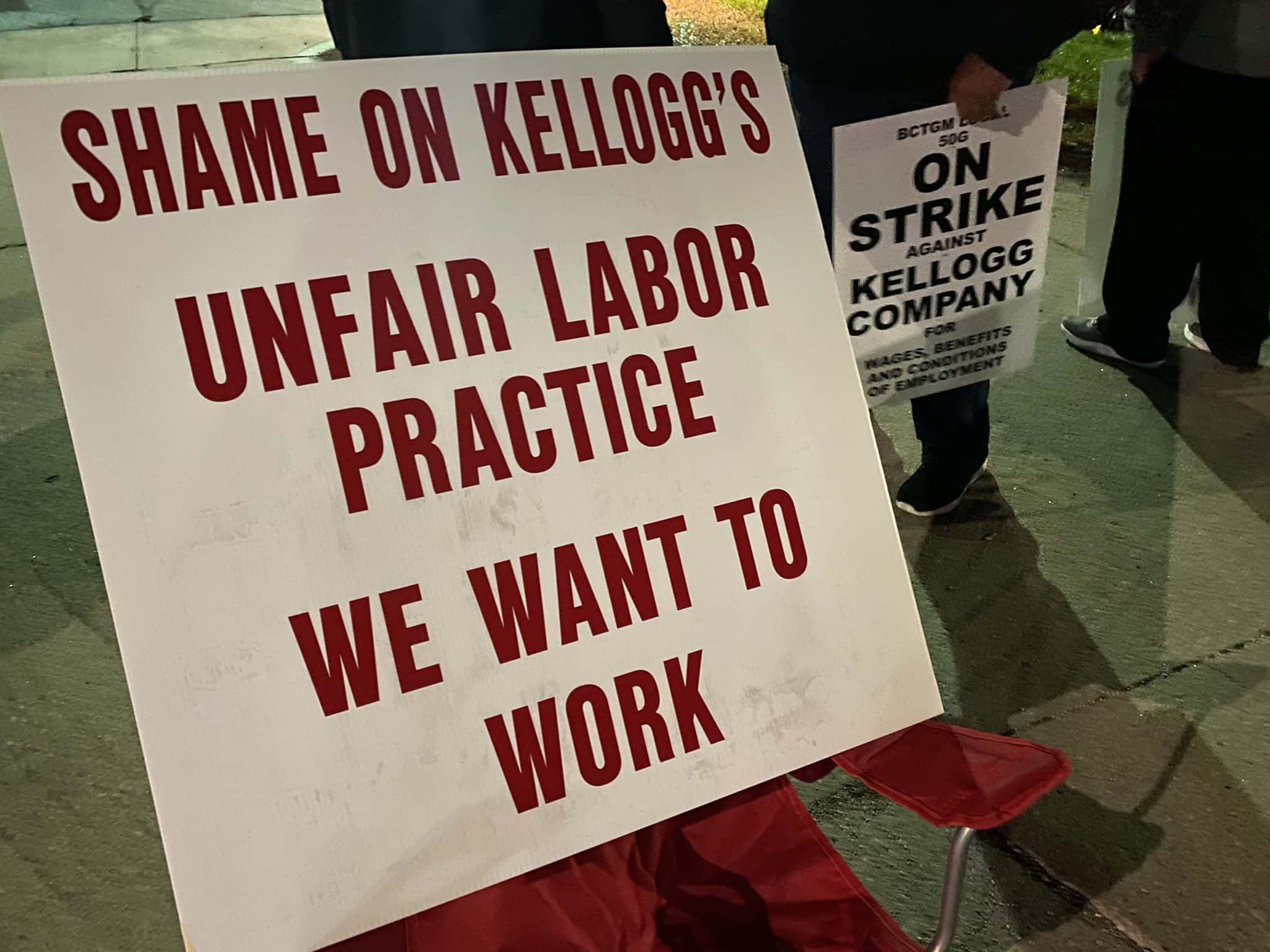Why are Kellogg workers striking? US plants go silent as staff say 'we were heroes'

Post the Covid-19 pandemic, workers are finding themselves in a unique position of power. First, service workers refused to return to their old jobs, then film crews went on strike. Now, Kellogg workers have become the latest to strike, as union negotiations with the company have failed to progress. Early on October 5, employees of the Kellogg plant in Battle Creek, Michigan went on strike, and the union behind them promised workers in the other three major plants would follow as well.
In August, workers at the Nabisco bakery in Northeast Portland went on strike, with their protest drawing the attention of Danny DeVito. In late September, the International Association of Theatrical Stage Employees (IATSE) called for a strike authorization vote, which was approved on October 4. The strikes come after a tough year with the Covid-19 pandemic, and economic meltdown leading to many rethinking their need for better benefits.
RELATED ARTICLES
What is Prop 22? CA judge rules measure unconstitutional in big win for Uber, Lyft drivers
Despite the dangers posed by unvaxxed Americans, and the economic hardships created by the Covid-19 pandemic, most businesses have returned to pre-pandemic working conditions. That's not gone down well with many workers, as strikes threaten to cut America's recovery efforts. The film industry could be the worst hit by this, but for now, it's Kellogg that's feeling the heat.
Why are Kellogg's workers on strike?
Workers at the Battle Creek plant in Michigan were the first to picket on October 5, after The Bakery, Confectionery, Tobacco Workers and Grain Millers International Union (BCTGM union) failed to reach an agreement with Kellogg by the deadline. The union represents workers at the Battle Creek plant, as well as in the plants at Lancaster, Pennsylvania; Memphis, Tennessee; and Omaha, Nebraska.
As with other union battles, the BCTGM union is fighting for "a fair contract that provides a living wage and good benefits." The two sides have been engaged in discussions for weeks, but so far have failed to find a satisfactory solution. Kellogg reportedly wants to create a two-tiered system "where there is no path to full benefits and pension", according to the union. It also flatly refused to offer 100% pension or healthcare and is pushing for the elimination of COLA (coat of living adjustment).
Those proposals though are flatly being refused. Furthermore, Kellogg reportedly wants to remove the union logo from packaging, which the BCTGM union says "would make it easier to move product to non-union locations" and called it "a sign of disrespect." The decision to strike wasn't just because of the proposals Kellogg put forward, but because the company also announced it would relocate cereal production. Reportedly, the firm would cut 212 jobs at the Battle Creek plant over the next two years to "streamline its efforts and relocate cereal production across its ready-to-eat cereal network." It would be the second gutting at the same plant in less than a decade. Back in 2018, Kellogg cut 223 jobs as part of a "structural change".

'We're going to get our respect back'
Workers began picketing at the Battle Creek plant at 1 AM, with several talking to reporters about the importance of the protest. "Our equipment gets three days off. We don't. We work 100 days in a row, 150 days in a row with no day off," said Trevor Bidelman, president of the Local 3-G chapter of the union. He added, "We were heroes while the company was making millions and millions of dollars... that's what we're here fighting for. We're fighting for our future."
Bidelman was optimistic about the union's chances. "It's going to make an impact no matter what because no matter what transpires here, we're going to get our respect back," he said. Bryon Leche, an electrician for the company said, "Some people at the plant don’t have a scheduled day for the entire year. We aren’t willing to accept that anymore." In response to the protests, Kellogg released a statement to multiple media organizations saying, "Kellogg is committed to negotiating a fair and competitive contract that reflects the contributions of our employees and helps set our cereal business up for long-term success. Our current proposals not only maintain industry-leading pay and benefits for employees, but offer significant increases in wages, benefits, and retirement."
It's unclear what effect the strikes will have on the company's production. Kellogg did say it is "prepared for any outcome", but with all four plants in the US going down, it is likely to leave the company in a spot of bother. The company has not addressed if the strikes will impact the availability of its products.










